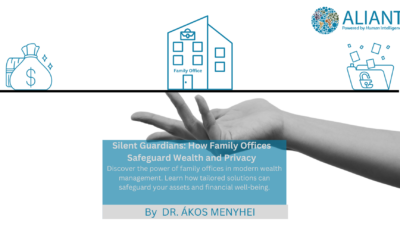Aliant explores the rise of Benefit Corporations in Europe: Società Benefit in Italy and Sociétés à Mission in France.
Benefit corporations represent a new business model capable to integrate the profit-oriented economic activity with the purpose of common benefit, producing in the long-term positive effects on territories and the environment, people, communities and other stakeholders. Although the first legislative initiative dates back to 2010 in the U.S., Italy in 2016 and France in 2019 imported this experience in Europe, duly adapted to their law systems, introducing respectively the so called Società Benefit (SB) and the Sociétés à Mission (SàM), while other member States are discussing about this subject and the debate is open within the EU institutions. Moreover, it is important to take into consideration that this model varies from B-Corp: an international certification achievable by any for-profit company and aimed at measuring the environmental and social impact of the company at a given time.
The Italian Legal Framework
The Italian legislator has conceived the SB as a status that every profit-company, regardless of its form, can obtain as a result of the modification of its bylaw accordingly to the rules provided by the Law 208/2015 in order to balance the interests of shareholders with the interests of the community pursuing responsible, sustainable and transparent management. While the French law provides that control over the achievement of the benefit objectives is left to a collective body distinct from the main controlling body, following the example of the US Benefit Corporations the Italian model of Società Benefit (SB) represents a higher level of Corporate Social Responsibility (CSR) since every entity is bound to adopt certain behaviors of high social value and to fix them in their bylaws. By failing to comply with these rules, the company not only does not fulfill their mission but fail also to comply with real legal obligations, resulting therefore in liability.
It is important to point out that no kind of reward, incentive or economic or fiscal advantage for the establishment or the transformation of Società Benefit (SB) is provided, so that this remains an entrepreneurial choice merely intended as a social mission. Anyway, there are indirect advantages in making this peculiar choice, as for example the attention paid by investors, the attraction of long-term capital investments through publicity and transparency on non-financial risks, a special visibility on the market in terms of high reputational and reliability value, a strong governance and an effective management, reward criteria for access to public tenders such as investments and public funding. The philosophy underlying the European Green Deal, the UN Sustainable Development Agenda 2030 and in general the new collective sensibility towards the themes of sustainability that seems to involve, regardless of the industry, more and more consumers all around the world redirecting their choices matches perfectly with this new model which has grown significantly over the past two years.
More recently, the Law Decree No 34/2020 first introduced and the Law Decree No 73/2021 then extended a tax credit, compliant with the EU rules on State aid and especially intended to strengthen the ecosystem of benefit corporations, equal to 50% of the costs of setting up or transforming into a Società Benefit, for a maximum of 10M euros, and the last 18 November an implementing inter-ministerial decree was signed by the minister of Economic Development and the minister of Economy and Finance. Currently Italy counts about 1400 benefit corporations, doubling year over year, in almost all sectors such as food, wine, healthcare, marketing and communication services, training and education, machinery, equipment and fashion.
The French Experience
The Italian legislator has conceived the SB as a status that every profit-company, regardless of its form, can obtain as a result of the modification of its bylaw accordingly to the rules provided by the Law 208/2015 in order to balance the interests of shareholders with the interests of the community pursuing responsible, sustainable and transparent management. While the French law provides that control over the achievement of the benefit objectives is left to a collective body distinct from the main controlling body, following the example of the US Benefit Corporations the Italian model of Società Benefit (SB) represents a higher level of Corporate Social Responsibility (CSR) since every entity is bound to adopt certain behaviors of high social value and to fix them in their bylaws. By failing to comply with these rules, the company not only does not fulfill their mission but fail also to comply with real legal obligations, resulting therefore in liability.
It is important to point out that no kind of reward, incentive or economic or fiscal advantage for the establishment or the transformation of Società Benefit (SB) is provided, so that this remains an entrepreneurial choice merely intended as a social mission. Anyway, there are indirect advantages in making this peculiar choice, as for example the attention paid by investors, the attraction of long-term capital investments through publicity and transparency on non-financial risks, a special visibility on the market in terms of high reputational and reliability value, a strong governance and an effective management, reward criteria for access to public tenders such as investments and public funding. The philosophy underlying the European Green Deal, the UN Sustainable Development Agenda 2030 and in general the new collective sensibility towards the themes of sustainability that seems to involve, regardless of the industry, more and more consumers all around the world redirecting their choices matches perfectly with this new model which has grown significantly over the past two years.
More recently, the Law Decree No 34/2020 first introduced and the Law Decree No 73/2021 then extended a tax credit, compliant with the EU rules on State aid and especially intended to strengthen the ecosystem of benefit corporations, equal to 50% of the costs of setting up or transforming into a Società Benefit, for a maximum of 10M euros, and the last 18 November an implementing inter-ministerial decree was signed by the minister of Economic Development and the minister of Economy and Finance. Currently Italy counts about 1400 benefit corporations, doubling year over year, in almost all sectors such as food, wine, healthcare, marketing and communication services, training and education, machinery, equipment and fashion.




